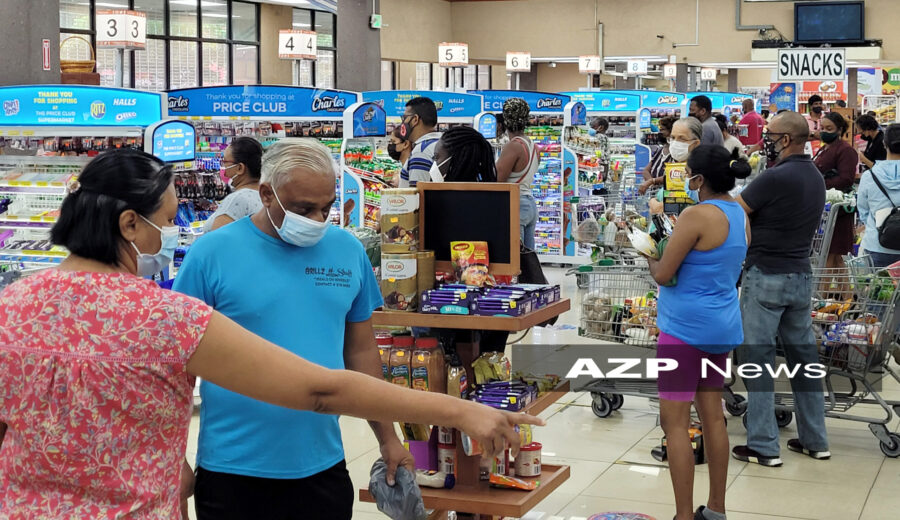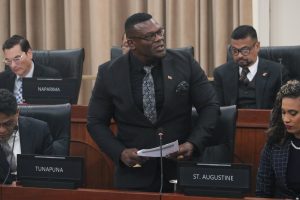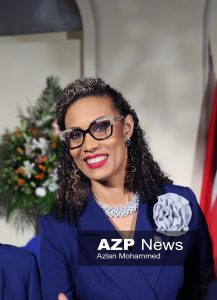Letters to the Editor can be sent at: letters@azpnews.com or news@azpnews.com
Dear Editor,
MONEY laundering has been a major concern for some time. Apart from undermining the integrity of the financial system, it can also facilitate the funding of terrorism, organised crime, and corruption.
To combat this illegal activity the government established the Financial Intelligence Unit (FIU) and passed Anti Money Laundering/Counter Terrorism Financing laws. To date, however, there have not been very many cases prosecuted in the courts for money laundering and anti-terrorist financing.
I dare say that the regulations have merely forced illegal activity into a new direction but it has not been eliminated. It would be grossly naïve of anyone including the government, banks and the FIU to think that the illegal money circulating in T&T is not making its way into the financial system. Can anyone say how all of the illegal guns, human trafficking, illegal immigrants etc. are financed, although there are laws and banking policies in place to combat this activity?
It is obvious that these regulations have had unintended consequences. In many cases, they have actually promoted the growth of the informal economy, which is defined as economic activity that is not regulated by the government or is not included in the gross domestic product (GDP). The informal economy can include everything from street vendors and unregistered businesses to illegal activities such as drug trafficking and human trafficking. Additional layers of bureaucracy only creates an illusion of effectiveness but doesn’t solve the problem. In fact on the streets, it is openly known that the going rate for laundering money is 50%.
Just imagine a particular bank is asking customers to provide documentation (ID, Utility Bill, etc) for each account they have at the same branch. Couldn’t the accounts be linked? What is the benefit of this type of additional bureaucracy? More importantly, has it really stopped illegal transactions? Money laundering is not small business. It is big. Those with a bit more sophistication wishing to conduct illegal activity open a “business” through which they can launder their cash. Simple as that.
These banking restrictions actually promote the informal economy by making it difficult for individuals and small businesses to access financial services. Opening a bank account at the moment has proven to be quite challenging for many people. Without access to formal banking services, many people turn to informal financial services or operate on a cash basis. If you are not satisfied with your current bank it is extremely difficult to change banks so customers’ choice is limited. So in banking, the customer has limited choice.
Moreover, the lack of access to formal financial services also makes it difficult for individuals and small businesses to access credit at competitive rates. Without credit, it is difficult to start or grow businesses, which can limit economic growth and innovation. The result is that many small businesses are forced to operate in the informal economy, where they are subject to even greater risks and fewer opportunities for growth.
The problem is exacerbated by the foreign exchange problem, where the banks are not able to sell businesses or individuals their required forex and people are forced to buy US cash on the black market. It is also no secret that many people prefer to hold their cash in US dollars as a hedge against devaluation or just to access to US dollars when required.
The lack of access to formal financial services can also make it difficult for individuals to receive remittances or send them to families abroad. This drives people to turn to informal channels to send and receive money, which can be risky and expensive. Why punish the poor?
Finally, the banking restrictions are creating a culture of distrust and suspicion. When people constantly subjected to intense scrutiny, they begin to feel as though they are being treated like criminals. This can create a sense of alienation and resentment, which can in turn drive people to turn to informal channels for their financial needs. Banks are becoming institutions of distrust not only because of their high service fees but also because of the difficulty in conducting legitimate transactions by the law abiding citizens.
In many cases, the informal economy is the only way for individuals and small businesses to survive in the face of financial exclusion. However, when the informal economy is driven by a lack of access to formal financial services, it can become a breeding ground for illegal activities such as money laundering and terrorism financing.
The unfortunate thing is that both the Central Bank of Trinidad and Tobago as well as the banking sector are fully aware of the impact of these rules and regulations and also their ineffectiveness in removing the plague of AML/CFT. So are we back to square one?
Dr Bhushan Singh
Via email
Letters to the Editor can be sent at: letters@azpnews.com or news@azpnews.com
![]()













